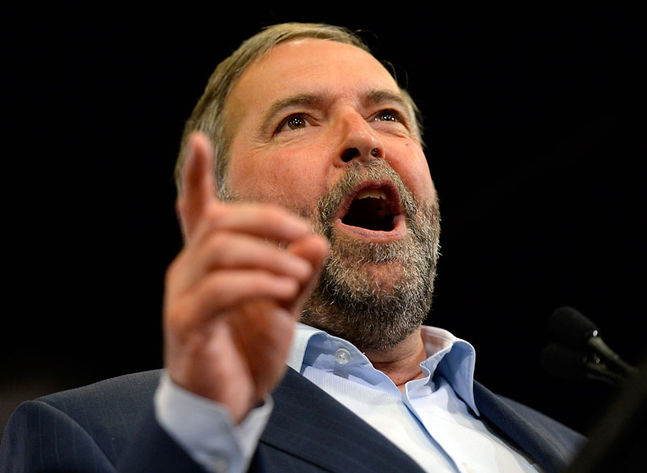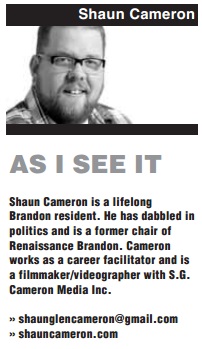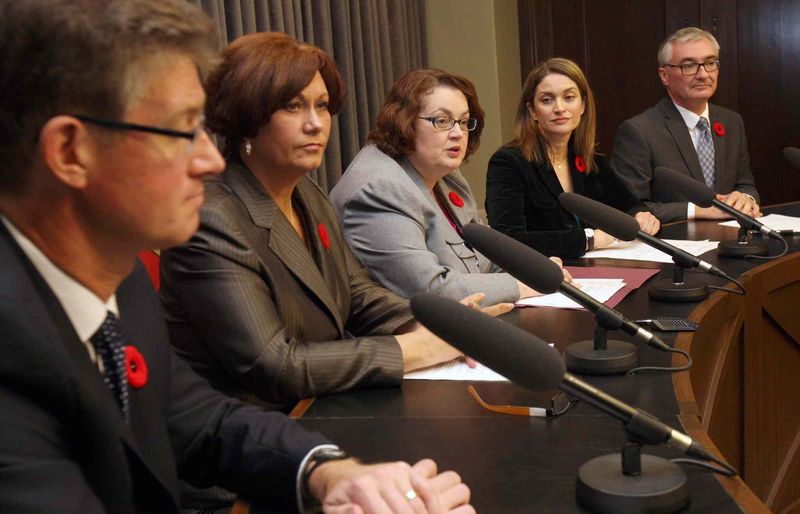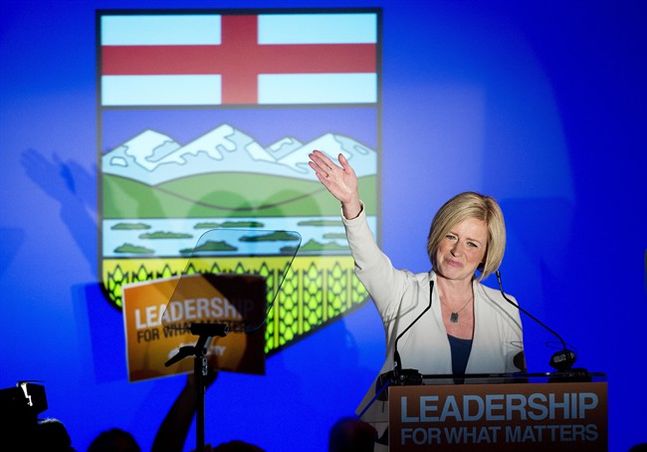Republished from the Brandon Sun print edition June 20, 2015

He has a memoir in the wings ready to hit the shelves, he has a life built in public office, he hails from a large French Catholic family and he is attempting to position himself as the next prime minister of Canada.
Tom Mulcair has taken a bit of a different route but his 15 minutes of fame appear to be upon us.
You may think an intro like that sounds more like Liberal Leader Justin Trudeau’s biography, but recent polling and some positive provincial results have the NDP leader smiling ear to ear as the prime minister’s office is within reach.
For the longest time, Mulcair was seen in the House of Commons as the easily angered and not so charismatic replacement to the late Jack Layton. He was mired somewhere in the middle of news stories and was poised to be an also-ran in an impending showdown between Prime Minister Stephen Harper and Justin Trudeau.
He had thrown out ideas such as the abolition of the Senate, increasing minimum wages to $15 an hour, and opposition to the Keystone XL pipeline, all three of which were firmly denounced by the Tories and Liberals.
The problem for those parties, however, is that while they were busy shooting down his strategies, Canadians began to listen. As well, somewhere along that path the hard-nosed Thomas Mulcair gave way to the much more likable, sportcoat-wearing Tom Mulcair — a smiling, free-spirited leader for the common Canadian.
He still held on to his beliefs of being the social conscience of government, but in the public’s eye, a transformation of epic proportions was taking place.
Much like his predecessor, Mulcair’s promise of hope and hard work was beginning to again resonate with Canadians and the polling numbers of late have shown it. Mulcair and his party have moved from dead last to a virtual dead heat with the Conservatives and Liberals for electoral support.
And while they are within reach, the New Democrats are still fully aware they need to be able to hold on to the seats gained in Quebec as well as build on potential gains in British Columbia and the Prairies should they want to continue to make a three-way race out of it.
Ideas such as their increased minimum wage and affordable child care will build on those current strengths provided they are able to get people out to actually vote for them this fall.
The one worry many within the NDP now have to be feeling is the same fear the Liberals have — has their leader peaked too early?
A year ago, Trudeau’s numbers were virtually untouchable and he had taken on a rock star aura — something Canadians had not seen since his father first burst on the scene in the 1960s. He was able to sustain that lead in the popular opinion and hypothetical election polls for many months, but as of late, has taken a bit of a backseat to the fatherly guy next door, Tom Mulcair. Note, it is no longer Thomas.
The other scenario that could rain on the NDP parade if it comes into play involves Quebec.
Remember that the Harper government won a majority in 2011 with only five seats in Quebec. Pair that with a Liberal party that is bound to do better this time around, especially in Trudeau’s backyard, and you could see an erosion of the Quebec-based votes that buoyed the NDP in the previous election. That opens up the middle for the Conservatives to find success once again and relegates one of the other leaders to opposition at best.
Looking beyond 2015, you certainly have Trudeau remaining as the leader of the Liberals. However, Mulcair’s window for becoming prime minister is closing somewhat more rapidly and he knows it — hence the all-out political “facelift.”
The New Democrats have done the right thing in softening Mulcair’s image in the public. By making him seem more approachable, by putting him out on the road to speak with Canadians and by giving his Quebec-centric support base a more national profile, they are taking back the page Trudeau and the Liberals stole from the NDP a short year ago.
What is left to be determined, however, is whether the NDP has run the trick play a bit too early in the game as they did in 1988 under Ed Broadbent.
In that scenario — much like today — they have given their opposition ample time to counter by making the election a referendum on issues and not a battle of ideologies.





Social Profiles